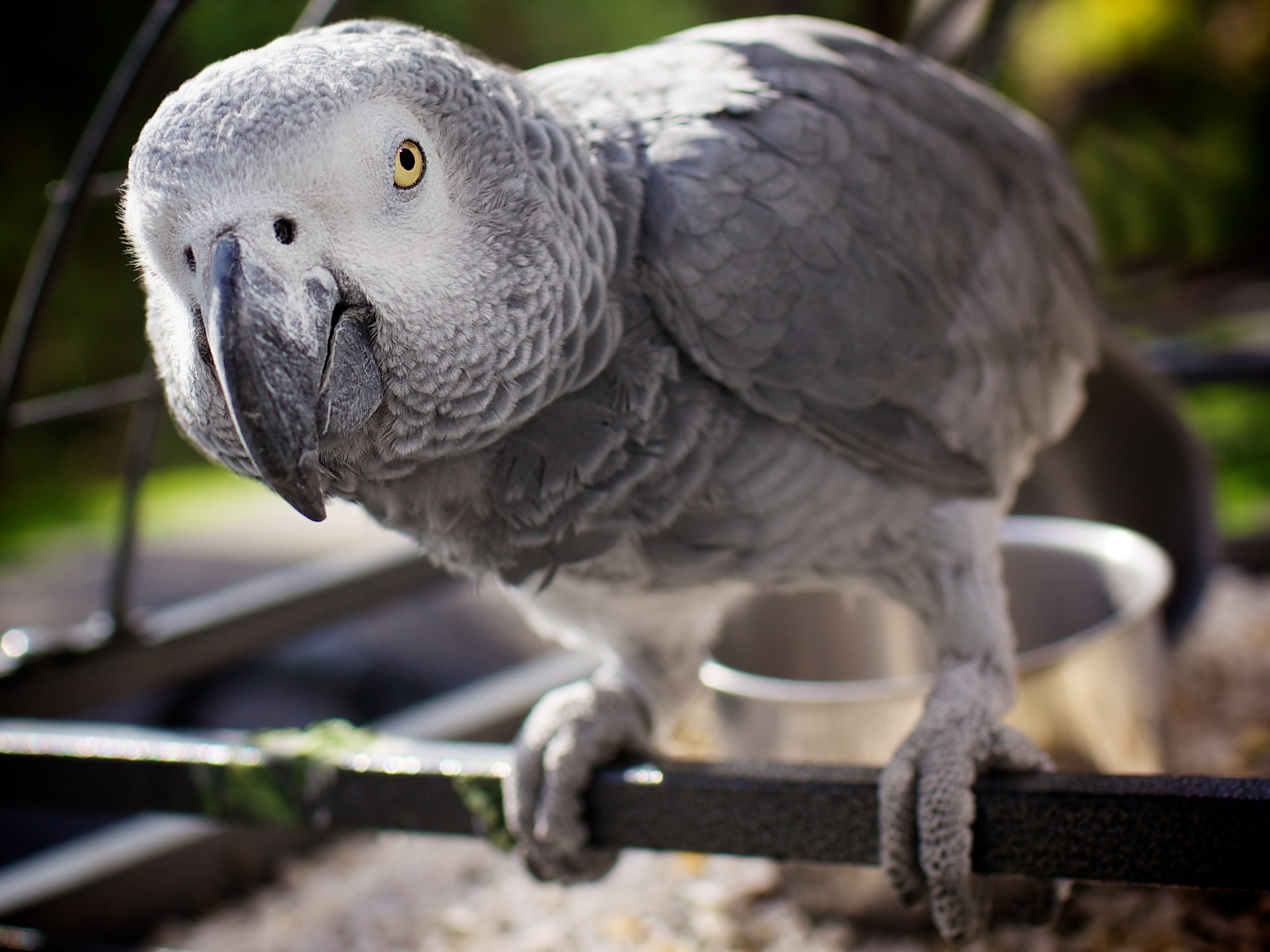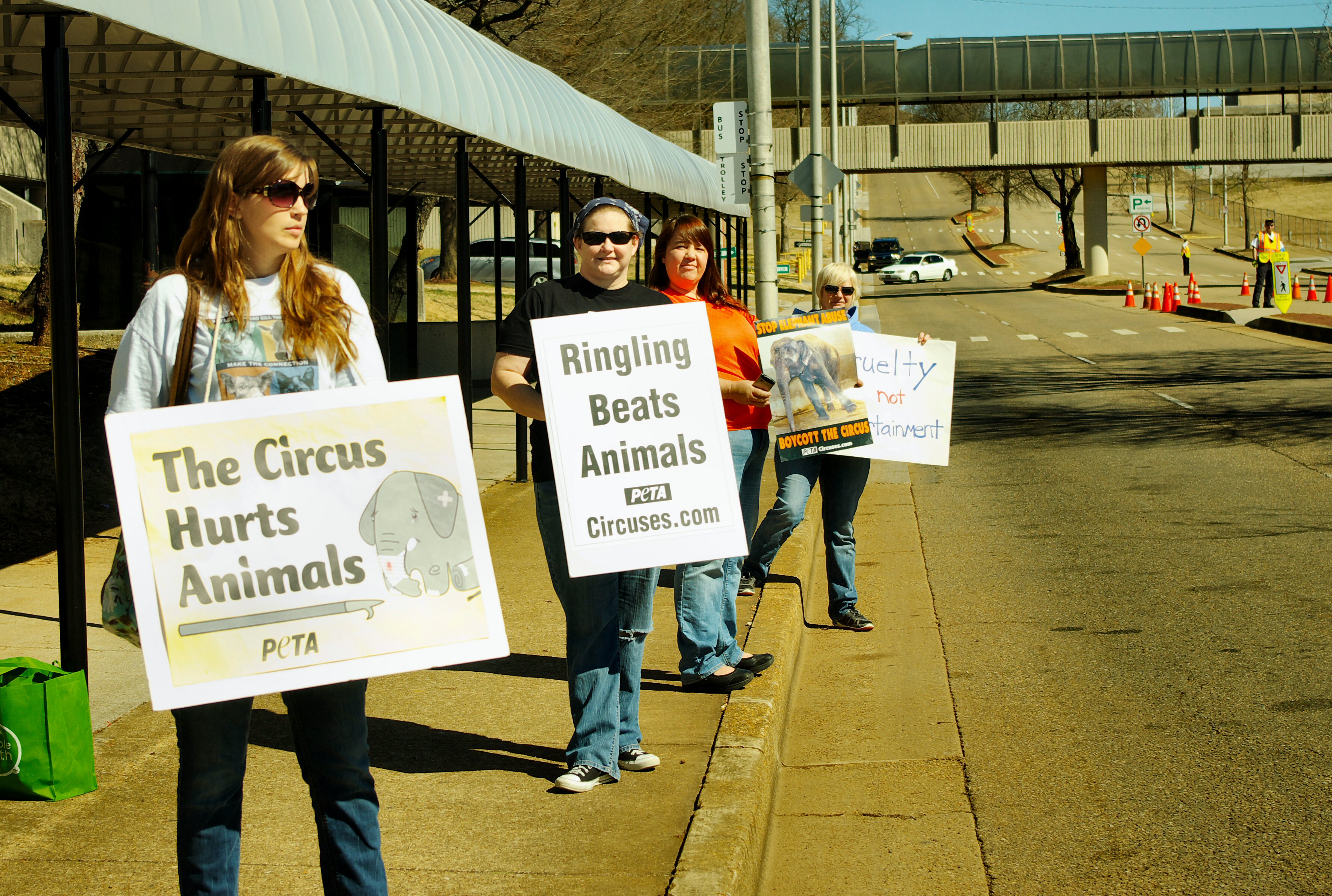|
Animal Welfare And Rights In Brazil
Animal welfare and rights in Brazil is about the laws concerning and treatment of non-human animals in Brazil. Brazil is a leading producer of animal products, and its allowance of intensive animal farming methods such as extreme confinement make farm animal welfare a major concern. Compared to other countries, Brazil also uses large numbers of animals for fur and research. Recent years have seen several welfare reforms by the government and major meat producers. Regulations Brazil's first animal welfare law was a 1924 decree prohibiting "carrying out any behavior or recreation that cause suffering to animals." A more comprehensive 1934 decree stipulated that animals not be overworked or kept where they cannot breathe properly, move, or rest, or are deprived of air or light, and that animals be given a quick death (whether or not they are for human consumption). The decree also prohibits abandoning a sick, injured or mutilated animal and failing to provide an animal with "a ... [...More Info...] [...Related Items...] OR: [Wikipedia] [Google] [Baidu] |
Animal Welfare
Animal welfare is the well-being of non-human animals. Formal standards of animal welfare vary between contexts, but are debated mostly by animal welfare groups, legislators, and academics. Animal welfare science uses measures such as longevity, disease, immunosuppression, behavior, physiology, and reproduction, although there is debate about which of these best indicate animal welfare. Respect for animal welfare is often based on the belief that nonhuman animals are sentient and that consideration should be given to their well-being or suffering, especially when they are under the care of humans. These concerns can include how animals are slaughtered for food, how they are used in scientific research, how they are kept (as pets, in zoos, farms, circuses, etc.), and how human activities affect the welfare and survival of wild species. There are two forms of criticism of the concept of animal welfare, coming from diametrically opposite positions. One view, held by some think ... [...More Info...] [...Related Items...] OR: [Wikipedia] [Google] [Baidu] |
Vegetarianism
Vegetarianism is the practice of abstaining from the consumption of meat (red meat, poultry, seafood, insects, and the flesh of any other animal). It may also include abstaining from eating all by-products of animal slaughter. Vegetarianism may be adopted for various reasons. Many people object to eating meat out of respect for sentient animal life. Such ethical motivations have been codified under various religious beliefs as well as animal rights advocacy. Other motivations for vegetarianism are health-related, political, environmental, cultural, aesthetic, economic, taste-related, or relate to other personal preferences. There are many variations of the vegetarian diet: an ovo-lacto vegetarian diet includes both eggs and dairy products, an ovo-vegetarian diet includes eggs but not dairy products, and a lacto-vegetarian diet includes dairy products but not eggs. As the strictest of vegetarian diets, a vegan diet excludes all animal products, and can be accompanied by absten ... [...More Info...] [...Related Items...] OR: [Wikipedia] [Google] [Baidu] |
Animal Consciousness
Animal consciousness, or animal awareness, is the quality or state of self-awareness within a non-human animal, or of being aware of an external object or something within itself. In humans, consciousness has been defined as: sentience, awareness, subjectivity, qualia, the ability to experience or to feel, wakefulness, having a sense of selfhood, and the executive control system of the mind. Despite the difficulty in definition, many philosophers believe there is a broadly shared underlying intuition about what consciousness is. The topic of animal consciousness is beset with a number of difficulties. It poses the problem of other minds in an especially severe form because animals, lacking the ability to use human language, cannot tell us about their experiences. Also, it is difficult to reason objectively about the question, because a denial that an animal is conscious is often taken to imply that it does not feel, its life has no value, and that harming it is not morally wro ... [...More Info...] [...Related Items...] OR: [Wikipedia] [Google] [Baidu] |
Abolitionism (animal Rights)
Abolitionism or abolitionist veganism is the animal rights based opposition to all animal use by humans. Abolitionism intends to eliminate all forms of animal use by maintaining that all sentient beings, humans or nonhumans, share a basic right not to be treated as properties or objects.Francione, Gary"Animal Rights: The Abolitionist Approach"/ref> Abolitionist vegans emphasize that the production of animal products requires treating animals as property or resources, and that animal products are not necessary for human health in modern societies.Gary Francione, ''Eat Like You Care'' Abolitionists believe that everyone who can live vegan is therefore morally obligated to be vegan. Abolitionists disagree on the strategy that must be used to achieve their goal. While some abolitionists, like Gary Francione, professor of law, argue that abolitionists should create awareness about the benefits of veganism through creative and nonviolent education (by also pointing to health and environ ... [...More Info...] [...Related Items...] OR: [Wikipedia] [Google] [Baidu] |
Animal Protectionism
Animal protectionism is a position within animal rights theory that favors incremental change in pursuit of non-human animal interests. It is contrasted with abolitionism, the position that human beings have no moral right to use animals, and ought to have no legal right, no matter how the animals are treated.Introduction, Francione and Garner 2010, pp. x–xi. Animal protectionists agree with abolitionists that the animal welfare model of animal protection—whereby animals may be used as food, clothing, entertainment and in experiments so long as their suffering is regulated—has failed ethically and politically, but argue that its philosophy can be reformulated. Robert Garner of the University of Leicester, a leading academic protectionist, argues that animal use may in some circumstances be justified, though it should be better regulated, and that the pursuit of better treatment and incremental change is consistent with holding an abolitionist ideology. Gary Francione, professo ... [...More Info...] [...Related Items...] OR: [Wikipedia] [Google] [Baidu] |
Animal Rights Movement
The animal rights (AR) movement, sometimes called the animal liberation, animal personhood, or animal advocacy movement, is a social movement that seeks an end to the rigid moral and legal distinction drawn between human and non-human animals, an end to the status of animals as property, and an end to their use in the research, food, clothing, and entertainment industries. Terms and factions All animal liberationists believe that the individual interests of non-human animals deserve recognition and protection, but the movement can be split into two broad camps. Animal rights advocates believe that these basic interests confer moral rights of some kind on the animals, and/or ought to confer legal rights on them;"Animal rights," ''Encyclopædia Britannica'', 2007. see, for example, the work of Tom Regan. Utilitarian liberationists, on the other hand, do not believe that animals possess moral rights, but argue, on utilitarian grounds — utilitarianism in its simplest form advoca ... [...More Info...] [...Related Items...] OR: [Wikipedia] [Google] [Baidu] |
Meatless Monday
Meatless Monday is an international campaign that encourages people to not eat meat on Mondays to improve their Health effects of meat consumption, health and the Environmental effects of meat production, health of the planet. Meatless Monday is a non-profit initiative of The Monday Campaigns Inc. in association with the Johns Hopkins Bloomberg School of Public Health Johns Hopkins Center for a Livable Future, Center for a Livable Future. Meatless Monday was founded in 2003 by marketing professional Sid Lerner. The program follows the nutrition guidelines developed by the USDA. Meatless Monday is part of the Healthy Monday initiative. Healthy Monday encourages Americans to make healthier decisions at the start of every week. Other Healthy Monday campaigns include: The Kids Cook Monday, Monday 2000, Quit and Stay Quit Monday, Move it Monday, The Monday Mile, and others. Meatless Monday focuses its initiative on Mondays for several reasons. Wednesday and Friday are traditionally da ... [...More Info...] [...Related Items...] OR: [Wikipedia] [Google] [Baidu] |
Humane Society International
Humane Society International (HSI) is the international division of The Humane Society of the United States. Founded in 1991, HSI has expanded The HSUS's activities into Central and South America, Africa, and Asia. HSI's Asian, Australian, Canadian, and European offices carry out field activities and programs. Activities Humane Society International (HSI) claims to address issues such as inhumane practices and conditions affecting companion and farm animals, illegal wildlife trade, threats to endangered species, slaughter of marine mammals, the use of animals in research and testing, the suffering of animals for the fur trade. HSI works with national and jurisdictional governments, humane organizations, and individual animal protectionists in over 50 countries worldwide to find practical, culturally sensitive, and long-term solutions to common animal problems and to inculcate an ethic of respect and compassion for all life. Methods Humane Society International (HSI) cooperate ... [...More Info...] [...Related Items...] OR: [Wikipedia] [Google] [Baidu] |
São Paulo
São Paulo (, ; Portuguese for 'Saint Paul') is the most populous city in Brazil, and is the capital of the state of São Paulo, the most populous and wealthiest Brazilian state, located in the country's Southeast Region. Listed by the GaWC as an alpha global city, São Paulo is the most populous city proper in the Americas, the Western Hemisphere and the Southern Hemisphere, as well as the world's 4th largest city proper by population. Additionally, São Paulo is the largest Portuguese-speaking city in the world. It exerts strong international influences in commerce, finance, arts and entertainment. The city's name honors the Apostle, Saint Paul of Tarsus. The city's metropolitan area, the Greater São Paulo, ranks as the most populous in Brazil and the 12th most populous on Earth. The process of conurbation between the metropolitan areas around the Greater São Paulo (Campinas, Santos, Jundiaí, Sorocaba and São José dos Campos) created the São Paulo Macrometr ... [...More Info...] [...Related Items...] OR: [Wikipedia] [Google] [Baidu] |
Paulista Avenue
Paulista Avenue (Avenida Paulista in Portuguese, ''Paulista'' being the demonym for those born in the state of São Paulo) is one of the most important avenues in São Paulo, Brazil. It stretches and runs northwest to southeast. Its northwest point is Praça Marechal Cordeiro de Farias ( pt) at its intersection with Rua da Consolação ( pt) and its southeast point is Praça Oswaldo Cruz ( pt) at its intersection with Treze de Maio, Bernardino de Campos, Desembargador Eliseu Guilherme, and Dr. Rafael de Barros avenues. Major crossroads on the street are Rua Augusta, Rua Haddock Lobo ( pt) and Avenida Brigadeiro Luis Antonio ( pt). Parallel to it are Cincinato Braga, Joaquim Eugenio de Lima on the Bela Vista/Paraíso side and Alameda Santos and Coronel Oscar Freire on the Jardins side. Paulista Avenue crosses sections of the neighborhoods of Paraíso, Bela Vista ( pt), Jardim Paulista, Cerqueira César ( pt) and Jardim América ( pt), ending in Higienópolis. The headquarters ... [...More Info...] [...Related Items...] OR: [Wikipedia] [Google] [Baidu] |
Portuguese Language
Portuguese ( or, in full, ) is a western Romance language of the Indo-European language family, originating in the Iberian Peninsula of Europe. It is an official language of Portugal, Brazil, Cape Verde, Angola, Mozambique, Guinea-Bissau and São Tomé and Príncipe, while having co-official language status in East Timor, Equatorial Guinea, and Macau. A Portuguese-speaking person or nation is referred to as " Lusophone" (). As the result of expansion during colonial times, a cultural presence of Portuguese speakers is also found around the world. Portuguese is part of the Ibero-Romance group that evolved from several dialects of Vulgar Latin in the medieval Kingdom of Galicia and the County of Portugal, and has kept some Celtic phonology in its lexicon. With approximately 250 million native speakers and 24 million L2 (second language) speakers, Portuguese has approximately 274 million total speakers. It is usually listed as the sixth-most spoken language, the third-most sp ... [...More Info...] [...Related Items...] OR: [Wikipedia] [Google] [Baidu] |
Habeas Corpus
''Habeas corpus'' (; from Medieval Latin, ) is a recourse in law through which a person can report an unlawful detention or imprisonment to a court and request that the court order the custodian of the person, usually a prison official, to bring the prisoner to court, to determine whether the detention is lawful. The writ of ''habeas corpus'' was described in the eighteenth century by William Blackstone as a "great and efficacious writ in all manner of illegal confinement". It is a summons with the force of a court order; it is addressed to the custodian (a prison official, for example) and demands that a prisoner be brought before the court, and that the custodian present proof of authority, allowing the court to determine whether the custodian has lawful authority to detain the prisoner. If the custodian is acting beyond their authority, then the prisoner must be released. Any prisoner, or another person acting on their behalf, may petition the court, or a judge, for a ... [...More Info...] [...Related Items...] OR: [Wikipedia] [Google] [Baidu] |







